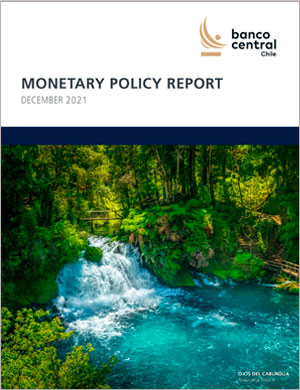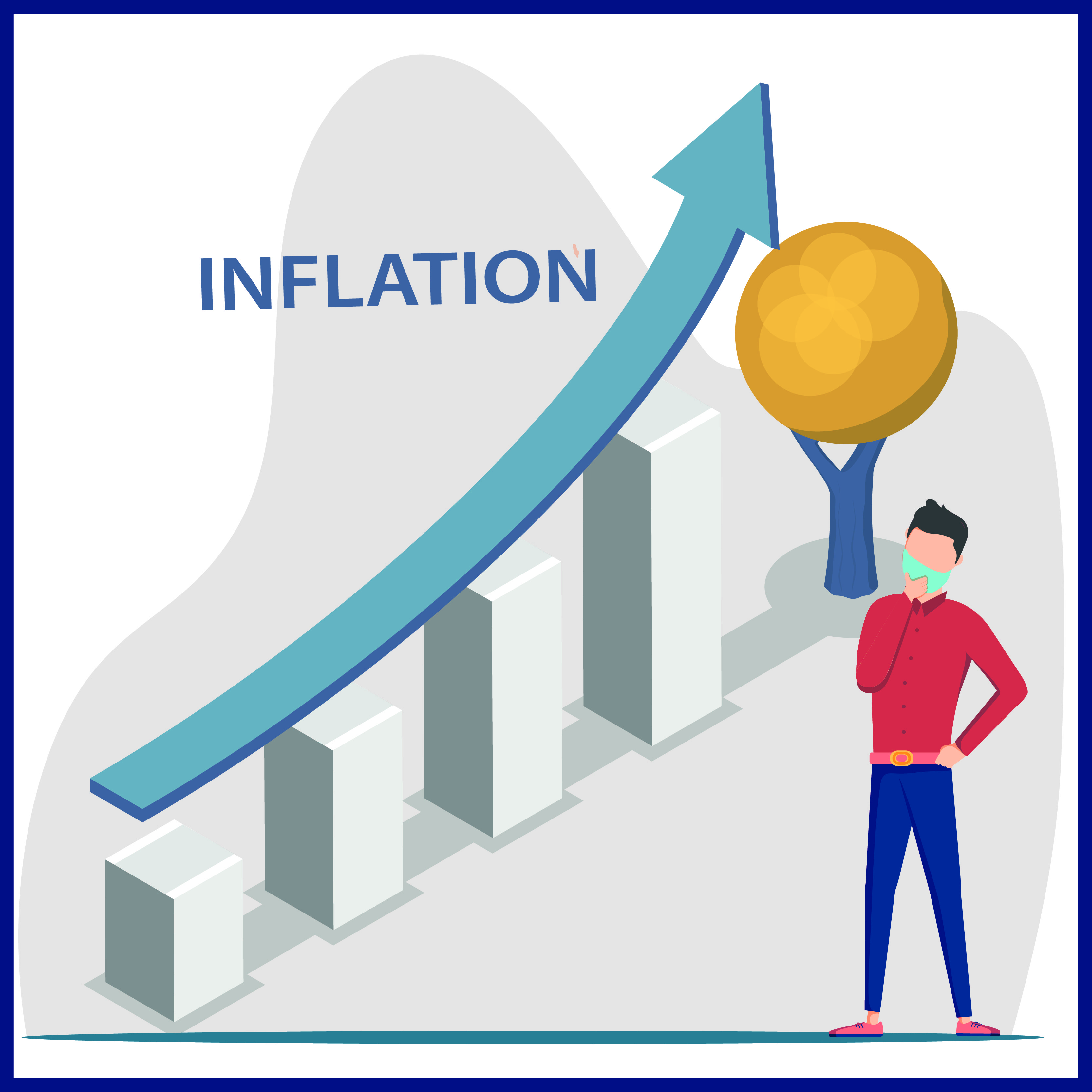Monetary Policy Report December 2021
Monetary Policy Report December 2021

Since the last MP Report, the economy has remained on a path of strong expansion driven by private consumption. Thus, growth in 2021 will exceed our September forecast, closing the year with activity levels significantly higher than those prior to the crisis and its estimated potential. Inflation has continued to rise, hitting over 6.5% annually, mainly because of the extraordinary expansion of domestic demand and the depreciation of the peso caused by idiosyncratic factors. These factors have been compounded with global phenomena such as stronger world demand, pandemic-related disruptions in the international value chains of goods and commodity price increases. In addition, higher inflation has been prolonged enough to risk second-round effects through contract indexation and wage increases. The costs of inflation on the economy are already visible, and have become a major economic concern for households and businesses. Keeping inflationary pressures in check will require the removal of the domestic demand stimulus measures deployed during the crisis. On the fiscal side, this implies that public spending will be adjusted to the budget approved for 2022, initiating a convergence path towards the structural balance target. On the monetary side, after having moved from its technical minimum to 4.0% in the second half of 2021, the Board estimates that the MPR should be further increased in the short term, to remain above its nominal neutral value—that which is consistent with the 3% inflation target—for the better part of the monetary policy horizon. This adjustment of fiscal and monetary policies will contribute to a gradual closing of the output gap, helping to prevent the recent inflationary dynamics from having a persistent impact on the price formation process. The Board foresees important risks surrounding this scenario, given the deterioration of the local capital market and the persistent uncertainty. This has led to significant increases in long-term interest rates and a lower appetite for Chilean financial assets, which has not allowed the economy to adjust as it did in past episodes. In addition, there are risks of worsening external financial conditions as a response of the central banks of the main economies to the rise in inflation.
What does this MP Report tell us?

Although the economy is experiencing a significant recovery, its growth rate is not sustainable over time.

Although the economy is experiencing a significant recovery, its growth rate is not sustainable over time.
- The opening of the economy and the liquidity that households have obtained through government aid and withdrawals of pension savings has triggered significant growth in spending.
- All economic sectors have recovered or exceeded their pre-pandemic activity levels, including the services sector, which was the hardest hit.
- Personal consumption has risen sharply in recent quarters, especially in durable goods, which are growing at unprecedented rates.

Among other negative effects, this growth is generating a significant increase in inflation.
- The main reason for the surge in inflation in Chile is that companies have been unable to respond quickly to the increased demand for their products, which has resulted in significant price increases.
- Meanwhile, the prices of many production inputs have risen significantly, aggravated by the sharp increase in the price of the dollar.
- In addition, companies are having problems filling worker vacancies, which has driven up salaries and, consequently, the costs of the companies themselves.
- There are also external factors that explain it, as the pandemic is still affecting the production and transportation of various products around the world, reducing their availability for sale.

This is a problem that affects everybody, although more significantly those who have less resources.
- Many people, especially the more resource-deprived, are finding it more difficult to buy the goods they are used to consuming.
- Some have had to hunt for cheaper products, buy alternative goods or have had to give up buying some things.
- If prices continue to rise, more people could be in trouble in the future.
- If inflation rises sharply today, it means that, going forward, the prices of rents, tuition, health plans, and others will become more expensive.

This is why the Central Bank has been raising the interest rate. Precisely to watch over people´s pockets
- The Central Bank has raised the interest rate because it increases the incentives for people to save their money and not spend it. This helps to prevent prices from continuing to rise.
- In the coming months the Central Bank will continue to raise the interest rate because it is important to keep inflation under control.
- Uncertainty about the pandemic, the evolution of the world economy and other factors is still very present.
- Maintaining a healthy economy is very important for the country to be able to grow in a sustainable manner, generate jobs, and keep inflation low and stable.
